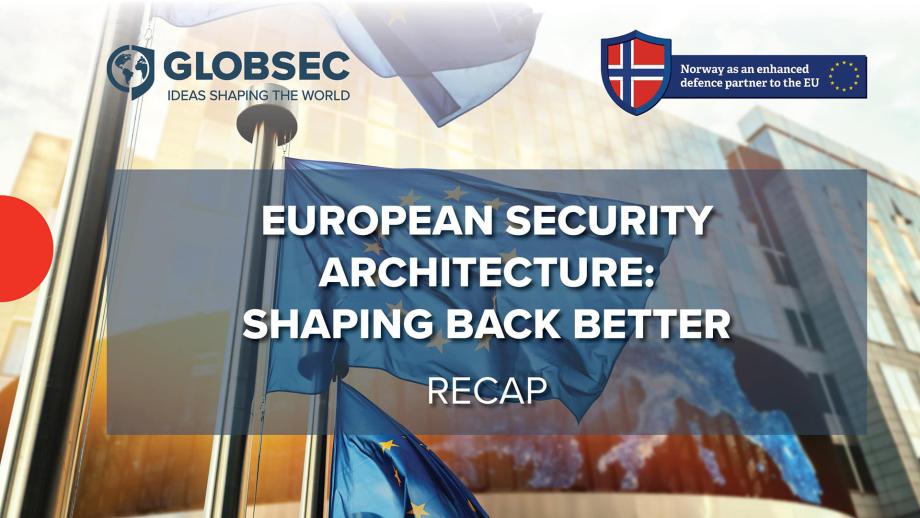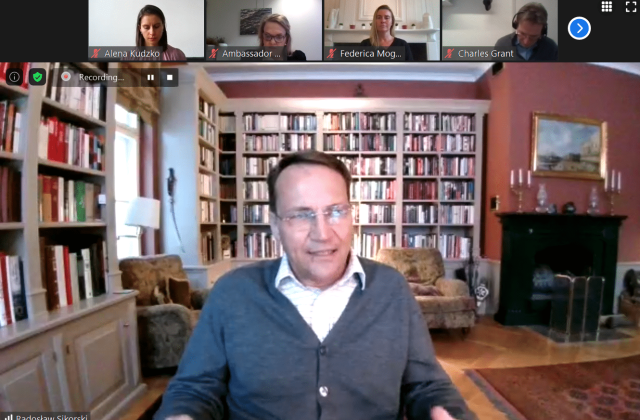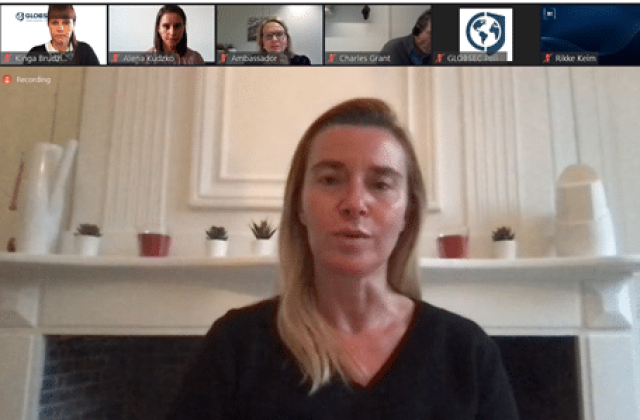European Security Architecture: Shaping Back Better: Recap

The upcoming challenges of European Security Architecture in 2021, the attitudes and perceptions towards building European strategic autonomy, and what partnerships outside of the EU can mutually address emerging issues were the main topics discussed during the closed-door debate on European Security Architecture.
What challenges ahead of the European Security Architecture were identified?
First of all, there are ‘old' threats that have not been resolved yet including the insecurity in the Southern Neighborhood, terrorism outside and inside the EU and hybrid threats, including disinformation and manipulation of public messages. However, on top of this, the EU has been recently dealing with an additional layer of challenges. Those are for example the weaponization of health equipment and climate change. The world has come to a realization that health issues such as the use of medical equipment, research information and even vaccines have become part of the security dynamic as well as the use of natural resources impacted by climate change.
In today’s globalized world, not only EU member states cannot deal with the security challenges alone, but the EU also needs to work with like-minded states such as the U.S., Canada and or Norway to face them. Ideally, the EU together with its partners, could form a global network of alliances to face the threats of today in different fields. There is a need to develop a variable-geometry of alliances across the world where different threats can be addressed by different networks of partnerships that need to be nourished on the basis of trust exchanges and sharing analysis.
What does it mean for the EU?
The EU strategic compass has been developed to define and counter the threats the EU is facing while enhancing its strategic autonomy and building stronger global partnerships. A strategic compass will provide an opportunity to reflect on how to deepen the EU's approach towards its partners in a more strategic way. Here, Norway serves as an excellent example of a well-developed strategic partnership with a close like-minded partner in the area of security and defence. It is therefore inevitable that the EU continues to develop tailor-made approaches to its other key partners as well. On the eve of Brexit, the EU needs to re-establish its cooperation with the UK in the area of security and defence, where Norway could serve as an example. Similarly, with the new Biden administration in the U.S., the EU has a great opportunity to resume cooperation in all the areas of shared interest.
The event titled: “European Security Architecture: Shaping Back Better” was held on January 13, 2020. It was organised within the framework of the project titled “Enhanced European Opportunity Partners in the EU´s Defence and Security Initiatives: Study case of Norway”, funded by the Norwegian Ministry of Defence.
This online event hosted excellent high-level speakers:
- Federica Mogherini, the Rector of the College of Europe, former High Representative of the European Union for Foreign Affairs and Security Policy and Vice-President of the European Commission
- Radek Sikorski, MEP, Poland, former Minister of Foreign Affairs and Minister of Defence, Poland
- Amb. Sofie From-Emmesberger, Chair of the EU’s Political and Security Committee
- Charles Grant, Director, Centre for European Reform, London
Almost 80 specialists from various public and private sectors participated in this event. In terms of public officials, there were experts from European institutions, Ambassadors from the Permanent Representation to the European Union of various member states, as well as officials from Ministries of Defence, Ministries of Foreign and European Affairs, and Ministries of Justice and Public Security. Regarding the private sector and academia, numerous researchers and business representatives participated as well. This included, among others, Harvard University, Carnegie Europe, the Norwegian Institute of International Affairs, Polish Institute of International Affairs and more.

